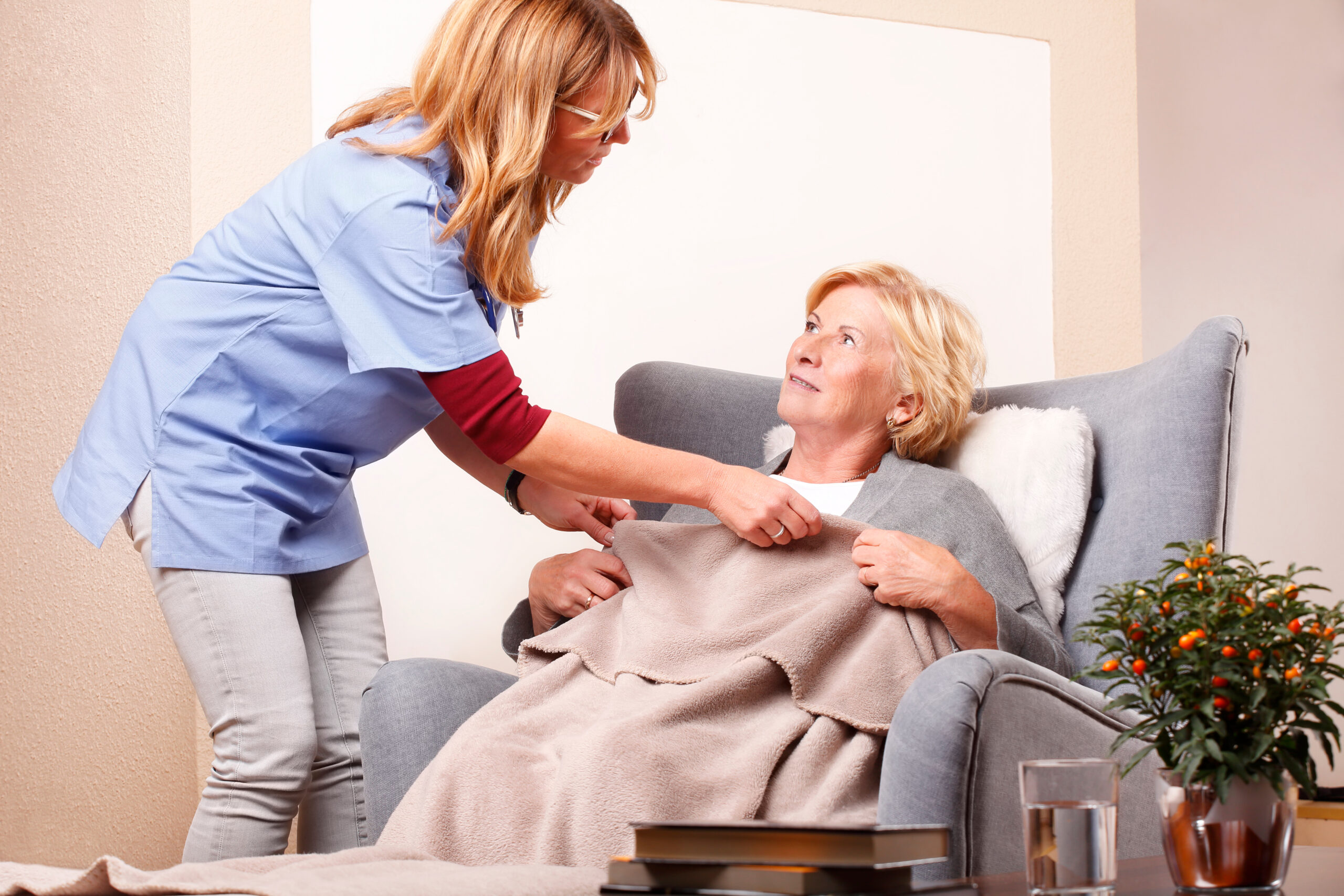
Table of Content
Caring for a senior with Alzheimer’s disease involves more than just offering companionship. It requires addressing a wide range of physical, emotional, and cognitive needs. Alzheimer’s is a progressive condition that affects memory, behavior, and the ability to perform basic daily tasks. Below, we’ll explore the most essential McLean home care needs families and caregivers should prioritize to ensure the wellbeing of senior loved ones with this condition.
Safety Measures at Home
One of the biggest challenges for seniors with Alzheimer’s is maintaining a safe living environment. The disease may cause disorientation, memory lapses, and impaired judgment, all of which can lead to accidents.
- Fall prevention – Remove tripping hazards like loose rugs, clutter, or stray cords. Install grab bars in bathrooms and railings on stairways. Nonslip mats can also be placed in areas like the bathtub or shower.
- Locked cabinets and doors – Medications, sharp objects, cleaning supplies, and other hazardous items should be securely stored. Use door alarms or locks to prevent wandering.
- Adequate lighting – Proper lighting throughout the home can reduce confusion and prevent injuries, especially during the night.
A safe home promotes independence and reduces anxiety for both seniors and their families.
Seniors can face a variety of challenges as they age, many of which can be mitigated with the help of professional in-home caregivers who provide high-quality home care. McLean families trust Assisting Hands Home Care to help their elderly loved ones age in place safely and comfortably. We also offer comprehensive care for seniors with dementia, Alzheimer’s, and Parkinson’s.
Personal Care Assistance
Seniors with Alzheimer’s often have difficulty managing daily hygiene and grooming tasks, such as bathing, dressing, or brushing their teeth. These tasks can easily become overwhelming without proper support.
- Bathing and dressing – Caregivers can provide gentle reminders or hands-on help with bathing, choosing appropriate clothing, and getting dressed. Easy-to-wear clothing with elastic or Velcro can simplify the process.
- Toileting – Many individuals with Alzheimer’s experience incontinence as the disease progresses. Caregivers may need to assist with bathroom routines or learn how to manage incontinence products.
- Nutrition and feeding – Alzheimer’s can lead to reduced appetite or forgetting to eat, putting seniors at risk for malnutrition. Simple-to-prepare, nutrient-rich meals paired with gentle encouragement can help them maintain a healthy diet.
Personal care assistance not only maintains physical health but also preserves the senior’s dignity.
Cognitive Stimulation
Mental engagement is an important part of McLean home care for Alzheimer’s patients. Cognitive stimulation can slow the progression of symptoms and boost overall quality of life.
- Puzzles and games – Activities like memory games or jigsaw puzzles are entertaining and mentally stimulating.
- Music and art therapy – These creative outlets often evoke positive memories and emotions while reducing stress.
- Routine conversations – Regular calm conversations about familiar topics can be comforting and reinforce memory.
Cognitive activities offer both emotional comfort and mental engagement, enriching the lives of Alzheimer’s patients.
There are many reasons seniors might need assistance at home. Some may require regular mental stimulation due to an Alzheimer’s diagnosis, while others might only need part-time assistance with exercise and basic household tasks. Assisting Hands Home Care is a leading McLean home care provider. Families rely on our expertly trained caregivers to help their senior loved ones maintain a high quality of life.
Social Interaction & Emotional Support
Isolation and loneliness can worsen the symptoms of Alzheimer’s, which is why emotional wellbeing should be a priority.
- Companionship – Family members, friends, or professional caregivers can provide meaningful interactions through shared activities such as reading, cooking, or reminiscing.
- Community support groups – Local or online support groups designed for Alzheimer’s patients and their families offer an outlet to share experiences, receive guidance, and build connections.
- Emotional reassurance – Seniors with Alzheimer’s can become easily agitated or confused. A calm tone, patience, and simple explanations can reduce stress and provide comfort.
Regular social interaction is essential not only for boosting mood but also for fostering a sense of connection and belonging.
Medication Organization & Health Monitoring
Alzheimer’s disease often comes with other health concerns, such as high blood pressure, diabetes, or arthritis. Proper care requires coordinated health and medical monitoring.
- Medication scheduling – Using pill organizers or mobile reminders can ensure medications are taken on time and in the correct doses.
- Regular checkups – Seniors with Alzheimer’s should attend scheduled medical appointments to address any new or ongoing health concerns.
- Monitoring behavioral changes – Caregivers should take note of changes in mood or behavior, as these could indicate pain, illness, or a need for an adjustment in treatment.
Effective medication organization and health monitoring ensure the senior’s physical health is supported alongside his or her cognitive needs.
Seniors with Alzheimer’s have much to gain when their families opt for professional home care. McLean families can rely on compassionate and dedicated caregivers to help their elderly loved ones manage the various challenges of Alzheimer’s disease so they can enjoy a higher quality of life. Rely on the professionals at Assisting Hands Home Care to provide high-quality compassionate care for your loved one. Give us a call today to learn about our flexible in-home care plans.








